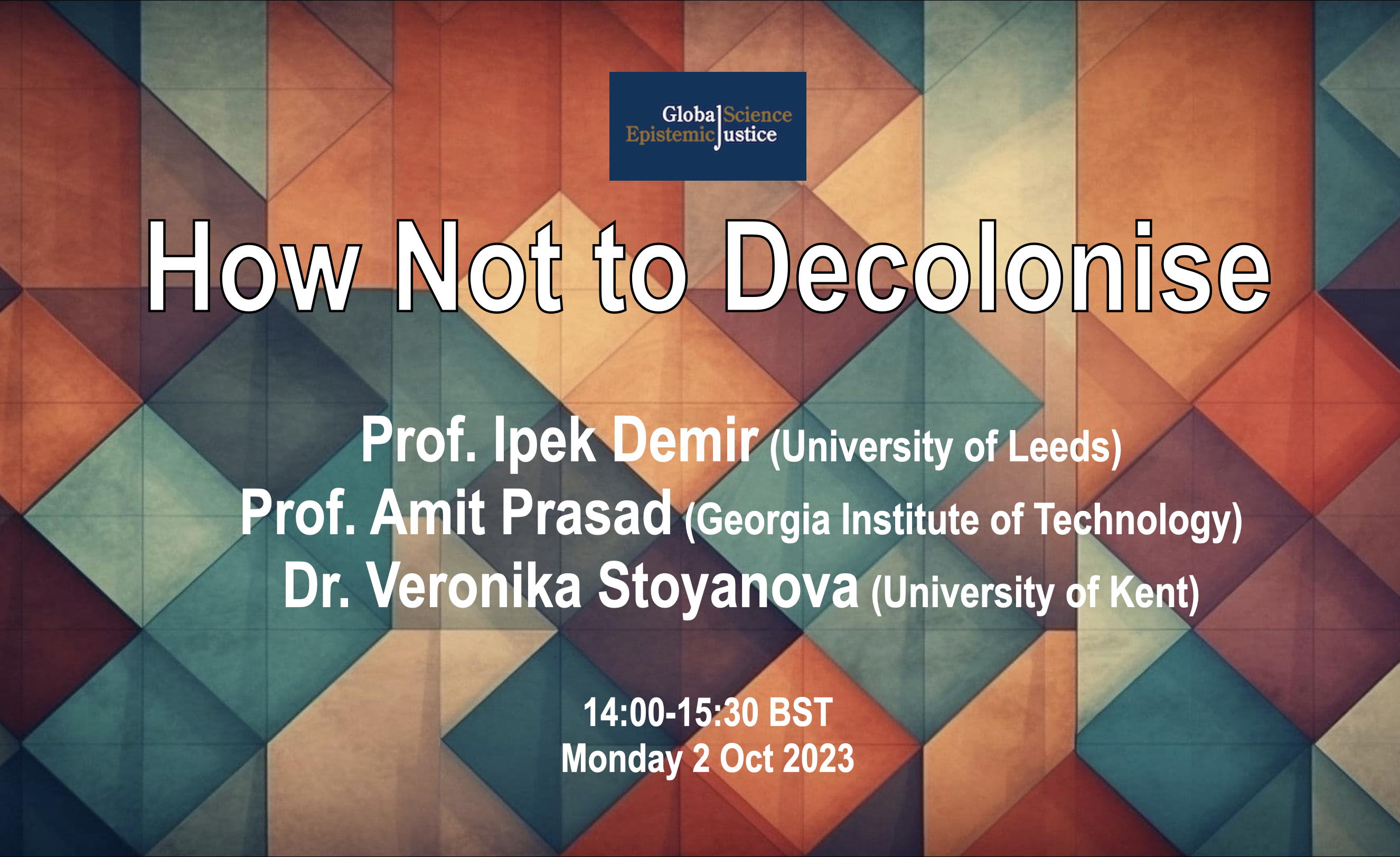We are thrilled to kick off the 2023/24 academic year with critical reflections on various existing decolonisation projects from three speakers with complementary insights.
The event, How Not to Decolonise, will take place between 14:00-15:30 BST on Monday 2 October.
All are welcome, and you can register your in-person or online attendance here: https://www.eventbrite.co.uk/e/how-not-to-decolonise-tickets-717158489347
In-person venue: Cornwallis East Seminar Room 2, University fo Kent’s Canterbury campus. Map: https://www.kent.ac.uk/maps/canterbury/canterbury-campus/building/cornwallis-east/cesr2
Programme:
How Not to Decolonise (Prof. Ipek Demir, Professor of Diaspora Studies in the School of Sociology and Social Policy and Director of the Centre for Ethnicity and Racism Studies, University of Leeds).
There is a growing willingness to reckon with race and coloniality in academia, including decolonisation which is an ongoing process of identifying and challenging the legacy of colonial structures and associated inherited prejudices of research and teaching in many disciplines (Demir 2023). In this opening talk, Prof Demir argues that if race and colonialism are to be taken seriously, then they need to shift our understanding and conceptualisation of mainstream sociological categories rather than merely be used as condiments which add ‘diversity’ to our teaching and research. She will discuss various sociological categories and concepts such as modernity/coloniality, gender, class and migration through a decolonial perspective to show how it can help us rethink the sociological mainstream and bring further rigour to sociological thinking. She will also consider how the instrumentalisation and co-option of the recent ‘decolonial awakening’ could be resisted.
Science Studies Meets Colonialism (Prof Amit Prasad, Associate Professor School of History and Sociology, Georgia Institute of Technology)
The field of science and technology studies has long critiqued the idea that there is such a thing as a universal and singular “Science” that exists independently of human society, interpretation, and action. However, the multiple significant ways in which colonial legacies impact and shape this project have often remained out of sight at the edges of the discipline. In his 2022 book, Science Studies Meets Colonialism, Amit Prasad seeks to rectify this erasure, demonstrating that problematic idealized imaginaries of science, scientists, and the scientific realm have undergirded the imagination of the West (and thus of its others), constructing hierarchies of technological innovation and scientific value, but also unexpectedly leaving society vulnerable to contemporary threats of misinformation and conspiracy theories. Prasad’s work provides insights on what necessitates decolonisation and what it actually entails.
Critical Reflections (Dr. Veronika Stoyanova, Lecturer in Political Sociology, founding member of the Centre for Global Science and Epistemic Justice, School of Social Policy, Sociology and Social Research, University of Kent. Dr. Stoyanova’s research interests are in theories of ideology and utopia, post-socialist studies, and also critical approaches to racism and marginalisation.)

